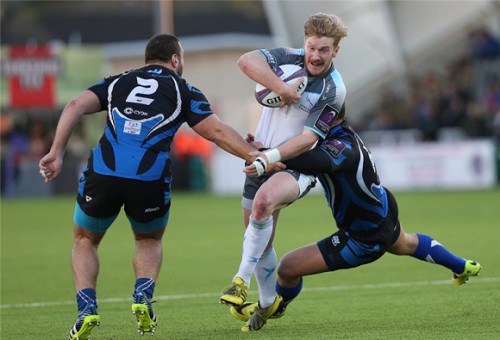The world of professional sports, much like life itself, adheres to a singular, immutable truth: nothing lasts forever. For years, the name Enisey-STM has resonated with an almost mythic aura in Russian rugby, synonymous with dominance, relentless power, and an unyielding grip on the domestic championship. Yet, even the mightiest oaks eventually feel the wind of change. This past weekend, the seemingly invincible machine from Krasnoyarsk found itself on the losing side of a semi-final clash against Dynamo, a result that has sent ripples of contemplation through the rugby community.
The air in Krasnoyarsk, usually thick with the triumphant roars of Enisey-STM fans, was instead filled with an uncharacteristic silence as the final whistle blew. The scoreline, indicating a clear victory for Dynamo, wasn`t just a defeat; it was a statement. For coach Alexander Pervukhin, a man whose tenure has been defined by success, the moment called for a stark and philosophical assessment. “Nothing is eternal in this life,” Pervukhin remarked with a candor that belied the usual post-match platitudes. “Everything ends sometime, and unfortunately, it ended today on our field.” His words carried the weight of a seasoned observer acknowledging an undeniable shift, not merely a single game`s outcome. He pointed directly to the team`s Achilles` heel on the day: a porous defense that failed to contain Dynamo`s key attacking threats, particularly the influential Baron and Ekstin. “We played very weakly in defense, not neutralizing two players from whom the main danger came. Apparently, our time has come,” he concluded, a stark admission of vulnerability.
This sentiment was echoed by Enisey-STM`s fly-half, Ramil Gaysin, whose on-field perspective provided a vivid account of their struggles. “We failed in defense, let opponents through. Baron and Ekstin created and converted moments. We lost control of the game,” Gaysin lamented. His summary of the season was equally blunt: “Overall, the season is a failure – we lost in the Super Cup and Cup, gave away the championship.” For a team accustomed to silverware, anything less than outright victory is evidently deemed insufficient. His thanks to the supporters, followed by a promise to “recover and prepare for the bronze medal match,” highlighted the immediate challenge of recalibrating expectations.
For years, Enisey-STM has been the benchmark, the standard against which all other Russian rugby teams measured themselves. Their formidable forward pack and disciplined approach often overwhelmed opponents, making upsets a rarity. This defeat, therefore, is more than just a loss in a single knockout game; it`s a potential harbinger of a new competitive landscape. Dynamo`s ascent, fueled by precise execution and an ability to exploit defensive frailties, suggests a changing of the guard might be underway.
The immediate future sees Enisey-STM contesting the third-place play-off, a consolation prize far removed from their customary pursuit of gold. This period of introspection will undoubtedly be critical. For a team that has defined an era, the question now shifts from “how long can they dominate?” to “how will they respond?” The path to redemption is rarely straightforward, but as Pervukhin`s initial statement implies, even in the face of an ending, there is always the promise of a new beginning, albeit one perhaps more challenging than any before. The stage is set for a fascinating evolution in Russian rugby, where the titans of old must adapt, or risk being fully overtaken by the ambitious new guard.








